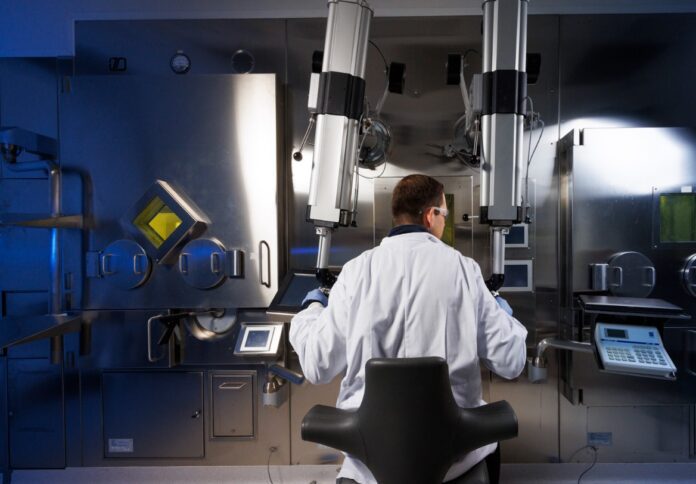
A newly launched research and manufacturing hub at The University of Queensland is spearheading the manufacturing of precise cancer drugs.
Known as the Australian Research Council (ARC) hub for Advanced Manufacture of Targeted Radiopharmaceuticals (AMTAR), this facility serves as a one-stop destination connecting biotech firms with the necessary expertise and equipment to develop, test, and deliver cutting-edge precision cancer treatments.
AMTAR, made possible through a $5 million ARC grant and over $10 million in industry funding, operates within UQ’s Australian Institute for Bioengineering and Nanotechnology (AIBN).
It serves as a collaborative platform connecting biotech firms with the necessary expertise and cutting-edge equipment to develop, test, and deliver precision cancer treatments, the university said in a news release.
Led by Professor Kris Thurecht, director of Research at AIBN, AMTAR focuses on radiopharmaceuticals – a burgeoning class of drugs designed to minimise the adverse effects of cancer treatment on healthy cells.
Professor Thurecht underscored the potential of radiopharmaceuticals to transform modern healthcare, citing their ability to deliver radiation directly to cancer sites while sparing surrounding tissues.
“Through AMTAR we have an opportunity to position Australia as a global leader in this field,” the professor asserted.
According to UQ data, traditionally, therapies like chemotherapy and radiotherapy have been the primary weapons against cancer. However, their non-selective nature often results in collateral damage to healthy cells.
Thus, radiopharmaceuticals offer a personalized and targeted alternative, delivering radiation specifically to cancerous cells.
Dr Michael Wheatcroft, chief scientist at Telix Pharmaceuticals, one of AMTAR’s industry partners, expressed excitement about the partnership’s potential.
“AMTAR will accelerate the development and commercialisation of novel radiopharmaceuticals in Australia and the team of high quality industry, academic and research partners will enable the translational science required to bring these innovative new technologies to patients,” he explained.
AMTAR’s collaborative network extends beyond UQ, involving partners such as the University of Sydney, multinational industry leaders like Telix, AdvanCell, and Starpharma, as well as academic institutions including the University of Nottingham and the University of Tokyo.
International contributions from the Oak Ridge National Laboratory and Memorial Sloan-Kettering Cancer Centre further enhance AMTAR’s global reach.
Dr Richard Johnson, Acting CEO of ARC, highlighted the hub’s significance in positioning Australia at the forefront of the radiopharmaceutical industry.
“The ARC has a proud history of facilitating collaborations that promise wider research benefits and commercial opportunities,” Dr Johnson affirmed.



















